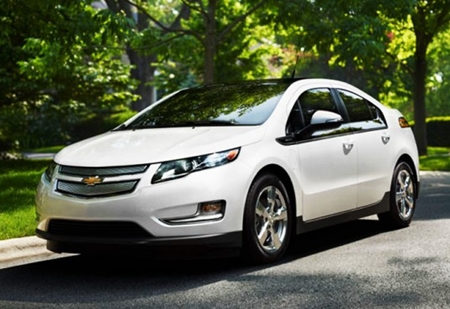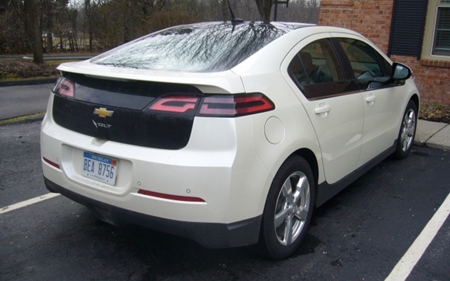General Motors Holden has received 900 expressions of interest from potential customers for its plug-in petrol-electric Volt that will go on sale in November.
The ANCAP (Australian New Car Assessment Program) safety rating is five stars, as good as you can get, and the fuel consumption is touted as 1.2 liters per 100 km on the combined test cycle, making it the most fuel-efficient petrol-electric car on the Australian market.
The problem to be overcome for GM is ‘range anxiety’ which potential purchasers are showing all over the world. “Will I be left stranded in the middle of the Friday afternoon rush our?” With the Volt having its own on-board charging system, this is not the case, as the Volt offers no-compromise motoring of up 600 km on a tank of petrol, while doing most of their daily travel on electricity alone.
 Chevrolet Volt
Chevrolet Volt
The way it works is that unlike plug-in hybrid vehicles, the petrol engine in the Volt never connects directly with the drive wheels, which are propelled by two electric motors with a combined power of 111 kW and 370 m of torque.
The 16.5 kW/h lithium-ion battery can be fully charged from a 15 amp 240 volt socket in about four hours. Then, as the battery charge is depleted on a journey, the on-board 1.4 liter 63 kW petrol engine – a version of the four-cylinder engine in the Chevrolet Cruze – kicks in to generate electricity to continue the journey for a further 500 km or more, depending on the driving conditions. It is then expected that the daily commute will be all-electric, and there is no anxiety about range. In the US, where the Volt has been on sale for more than a year, many owners state they are not using any petrol in their daily commute.
The driver can select from normal, sports and hold driving modes, with the latter used on a long trip to manually start the petrol engine and maintain the battery charge instead of depleting the entire battery before the petrol engine-generator kicks in.
No official acceleration figures have been released, although it is said to be about 9.1 seconds for the 0-100 km/h.
Safety features include a collision warning system – using a video camera mounted behind the top of the windscreen – that activates above 40 km/h to mitigate against rear-end collisions.
 Chevrolet Volt rear view.
Chevrolet Volt rear view.
Other high-tech safety features include lane-departure warning, tyre pressure readings, eight airbags and a “pedestrian-friendly alert” that beeps to warn walkers of the approach of the quiet Volt when running on battery alone.
The Australian version has leather heated seats, keyless entry and start, sat-nav, rear-view camera, audio system with DVD, voice recognition and iPod and Bluetooth phone connectivity as standard features.
Will we get the Volt here in Thailand? Somehow I doubt it, but with GM’s Chevrolet models doing very well in the marketplace, it might be worth having the Volt as a niche car, to outdo the hybrids from other manufacturers.




